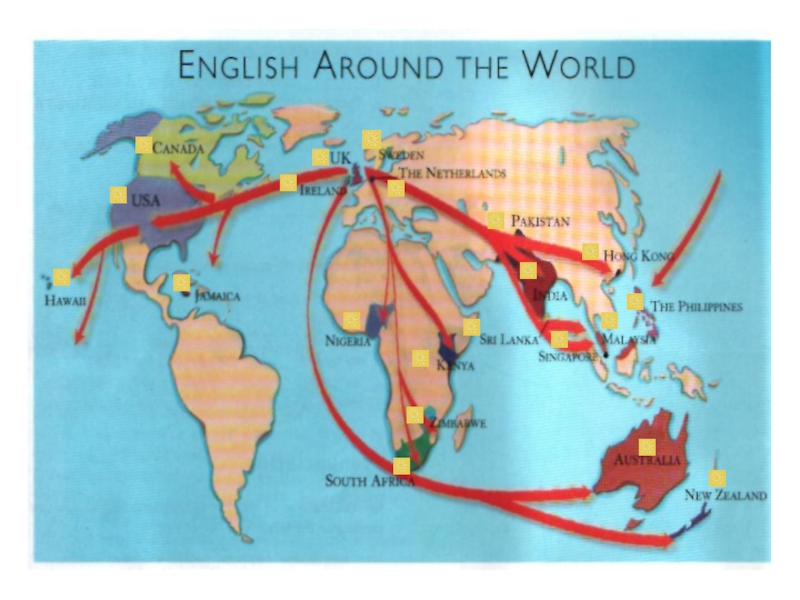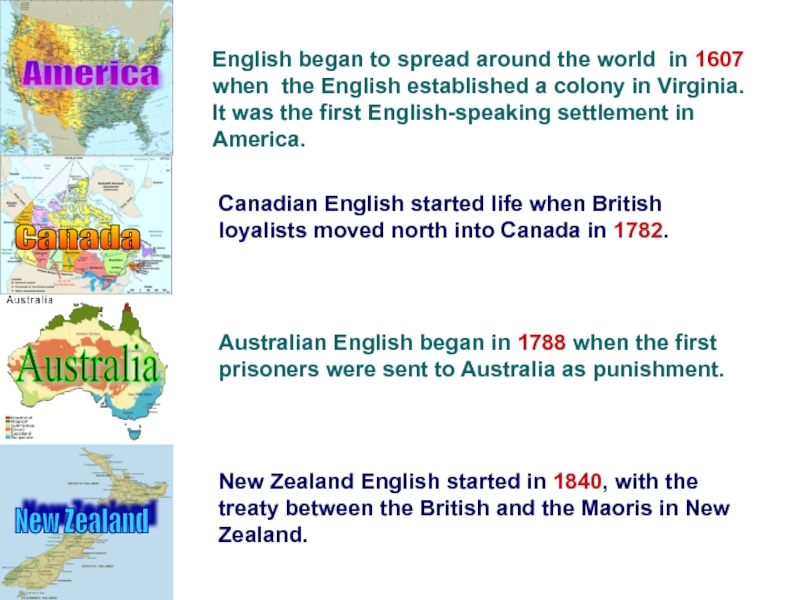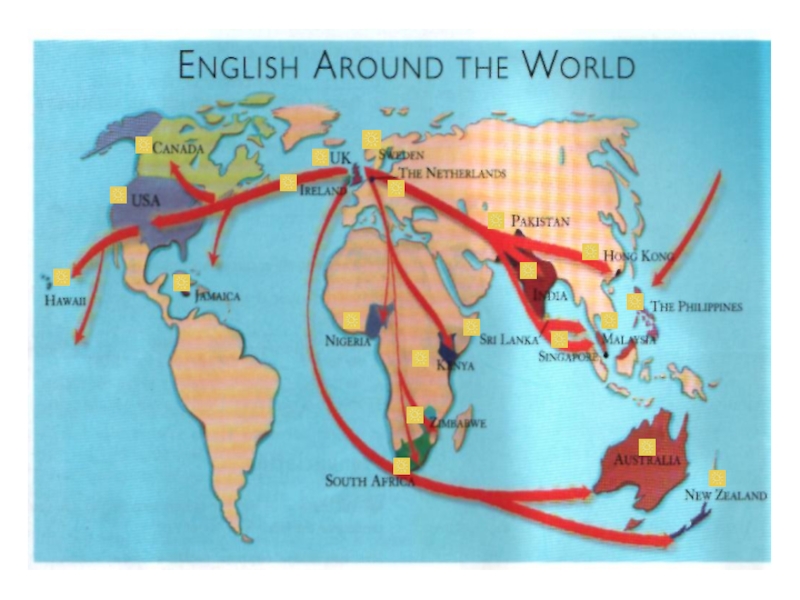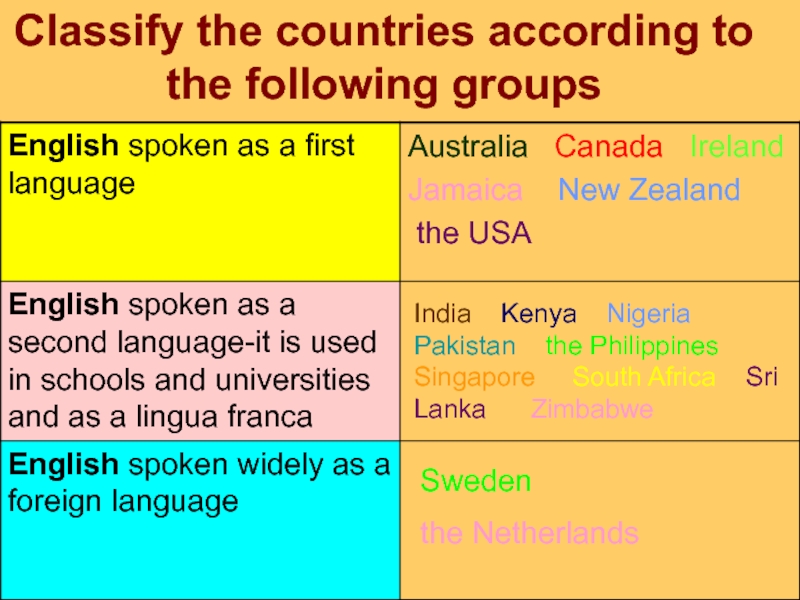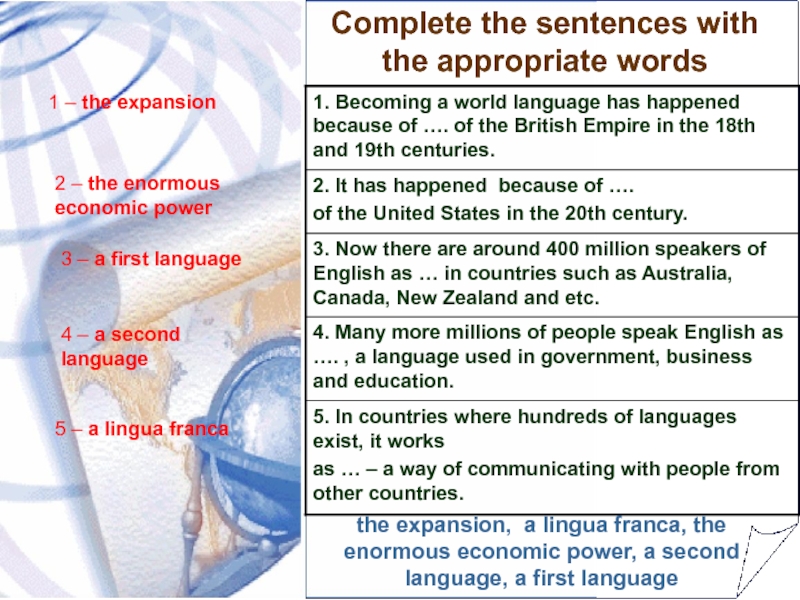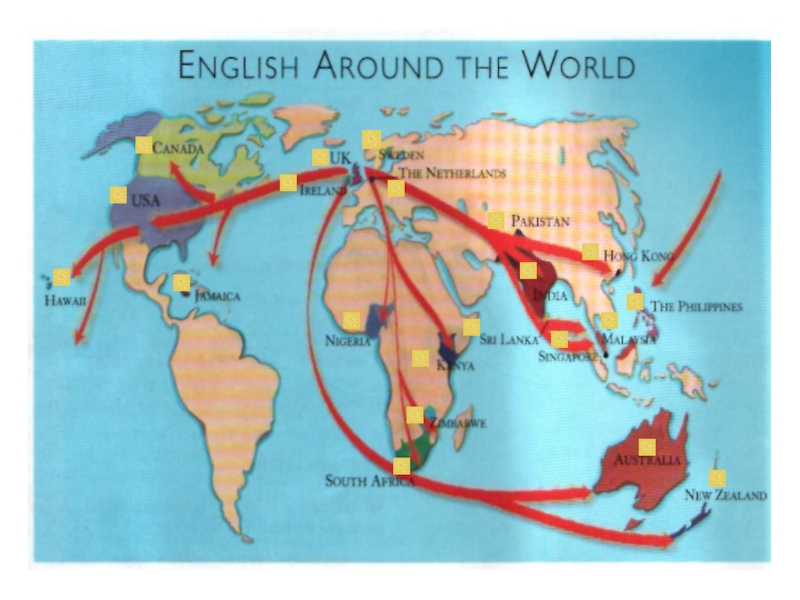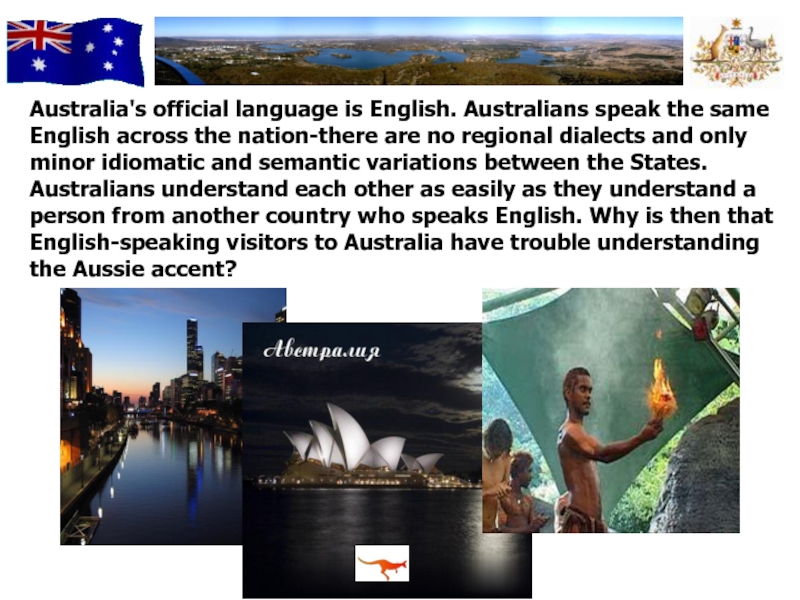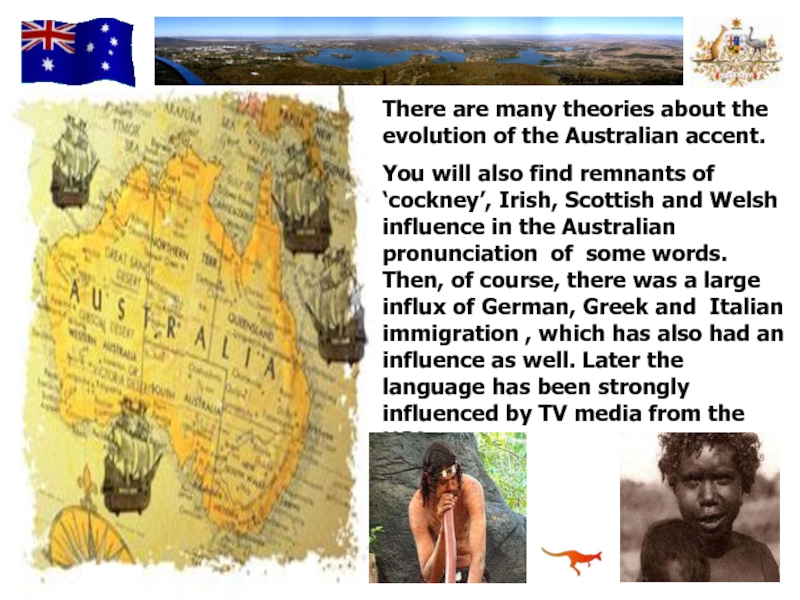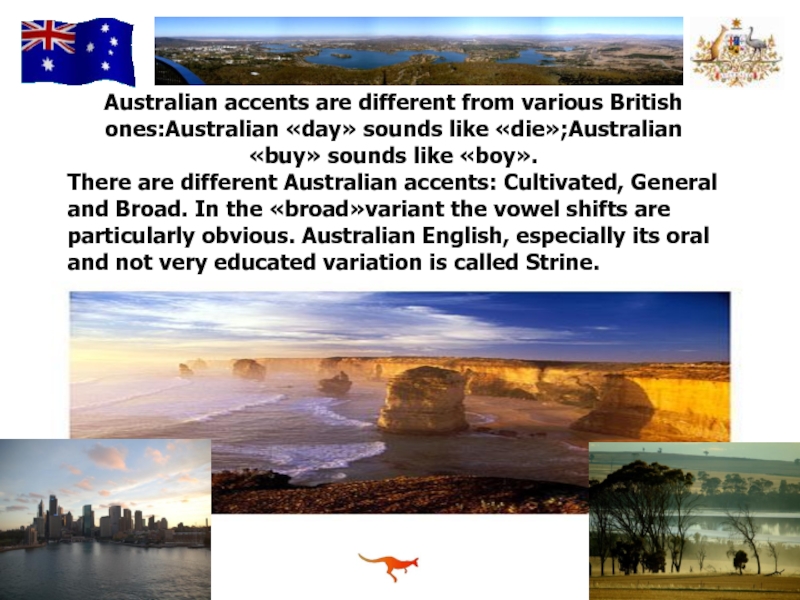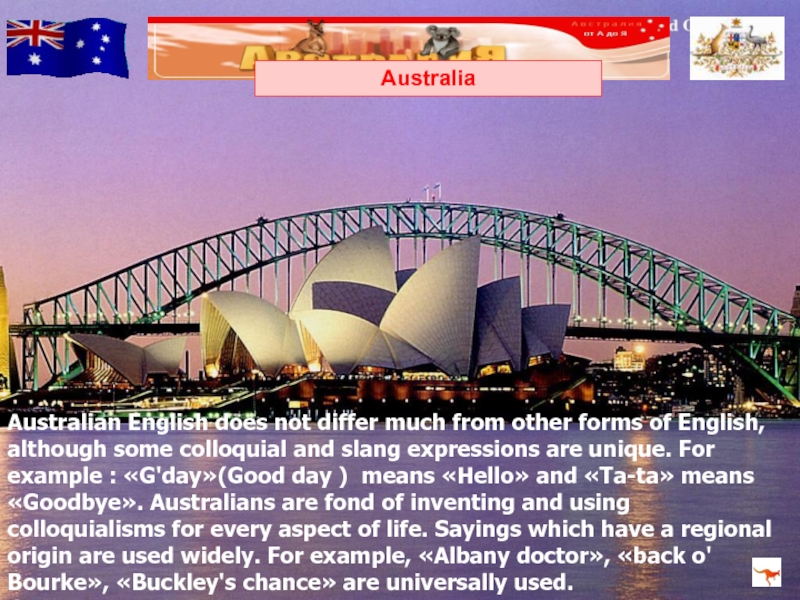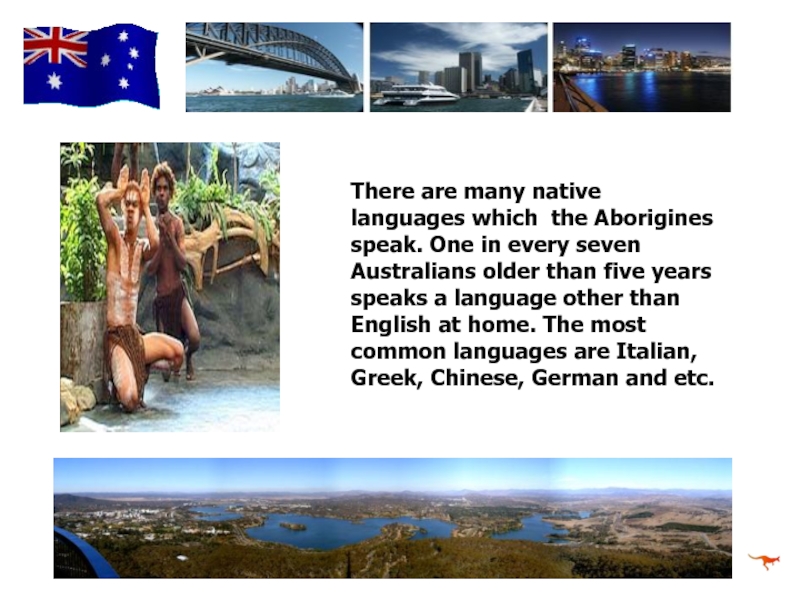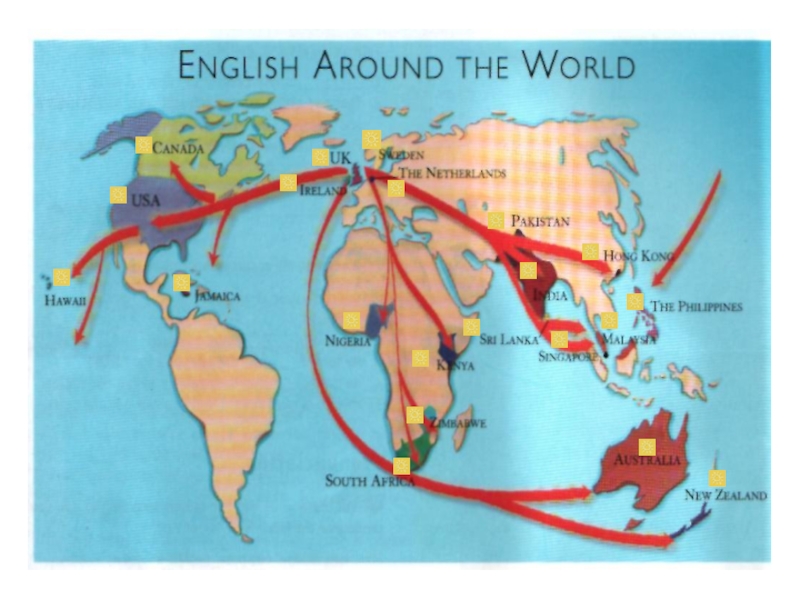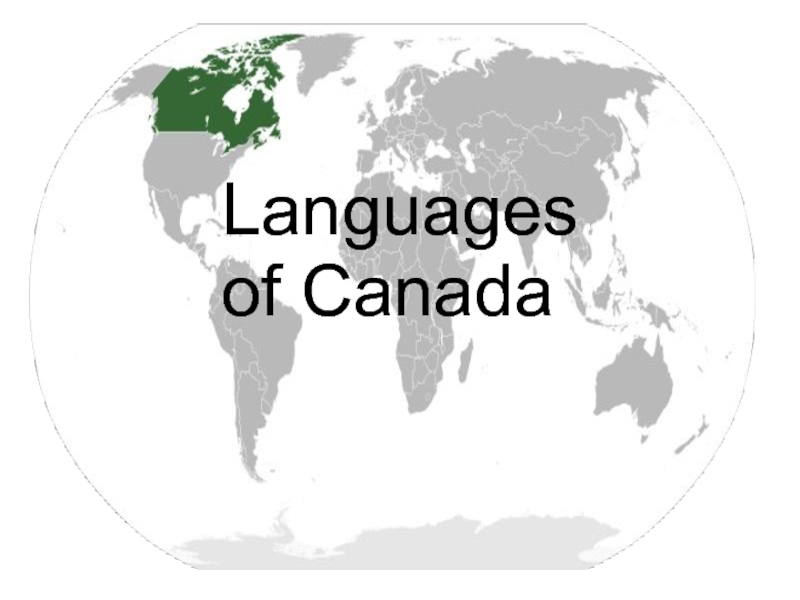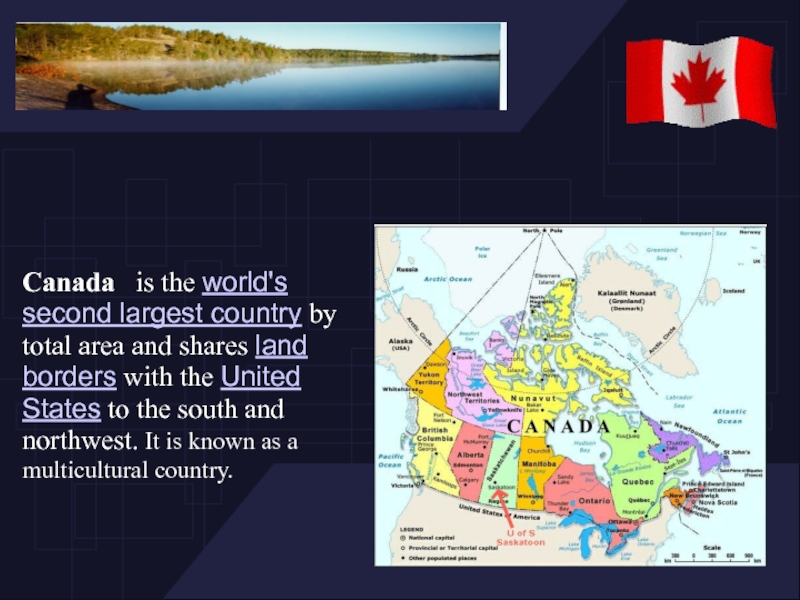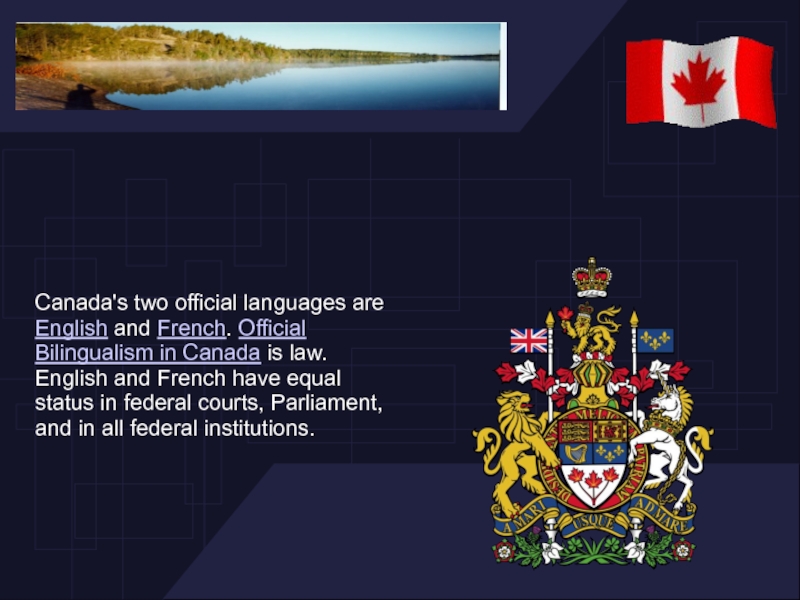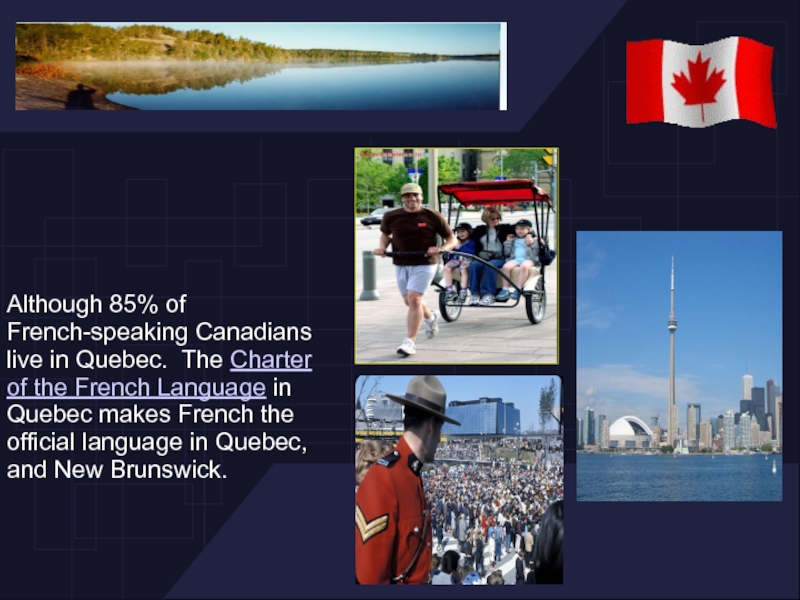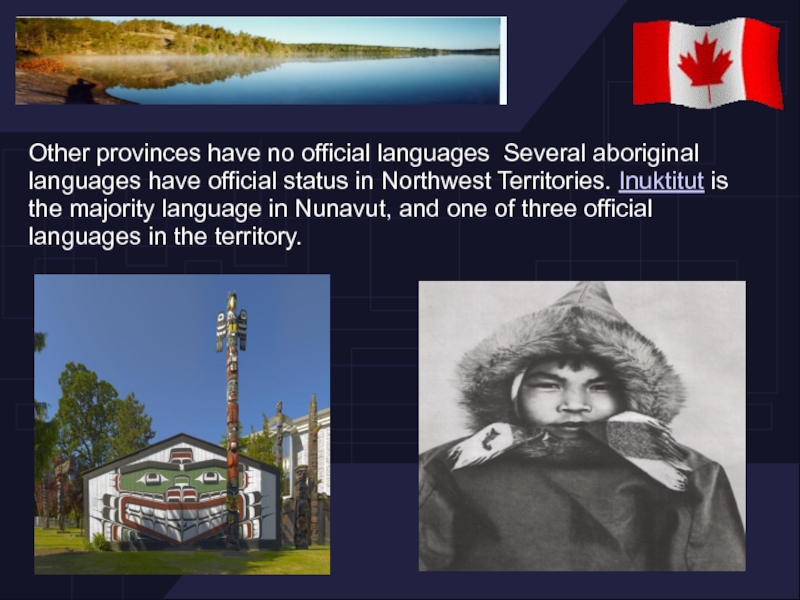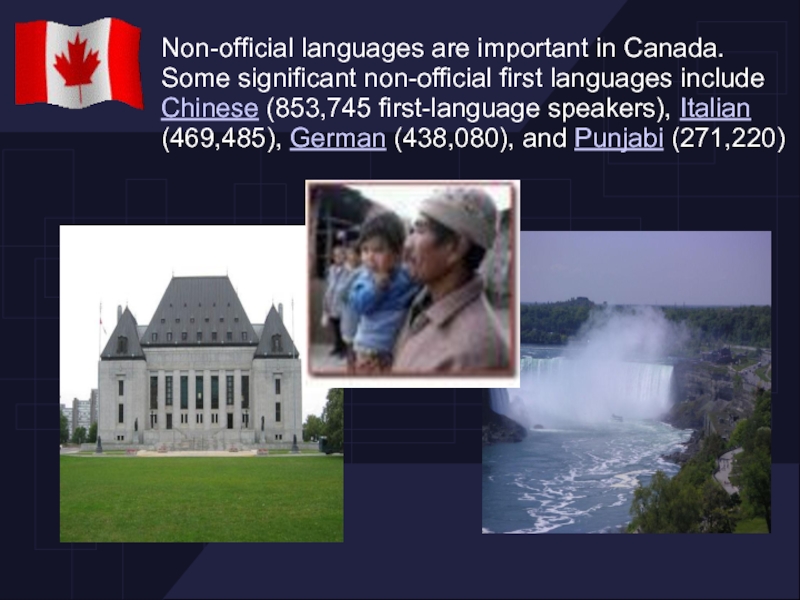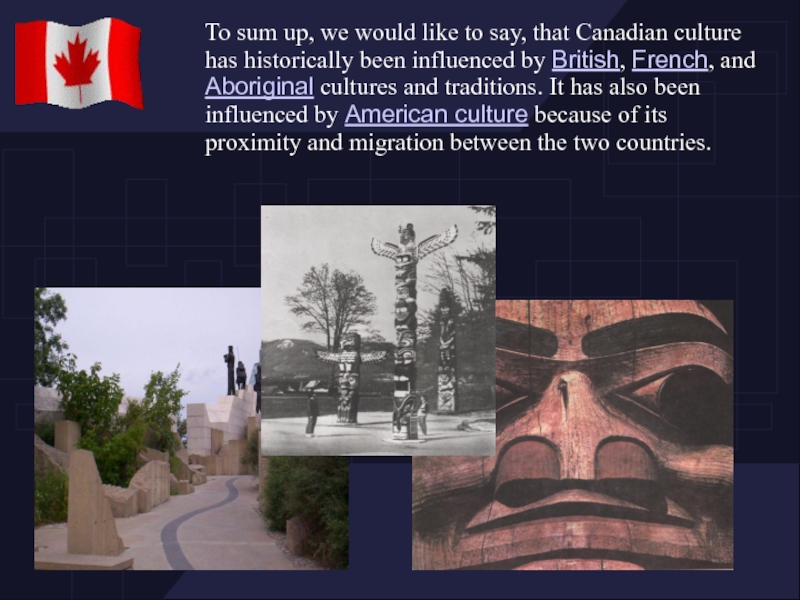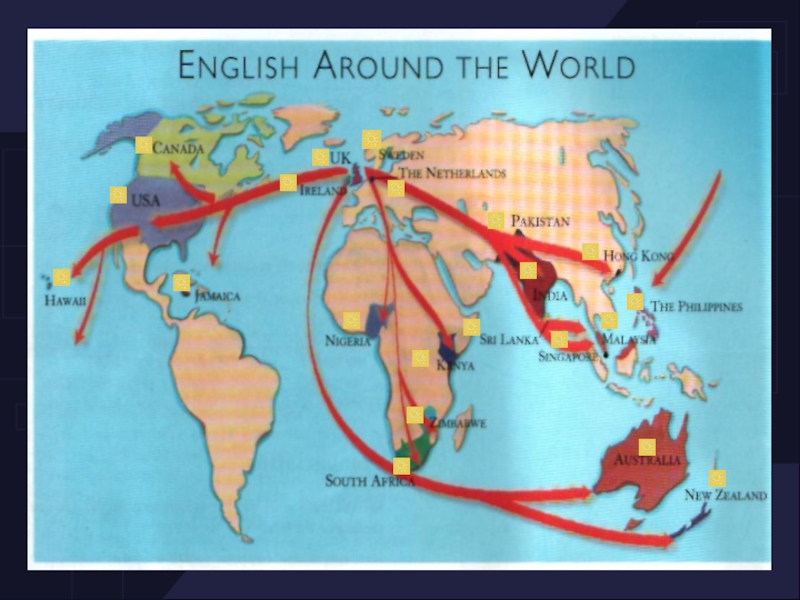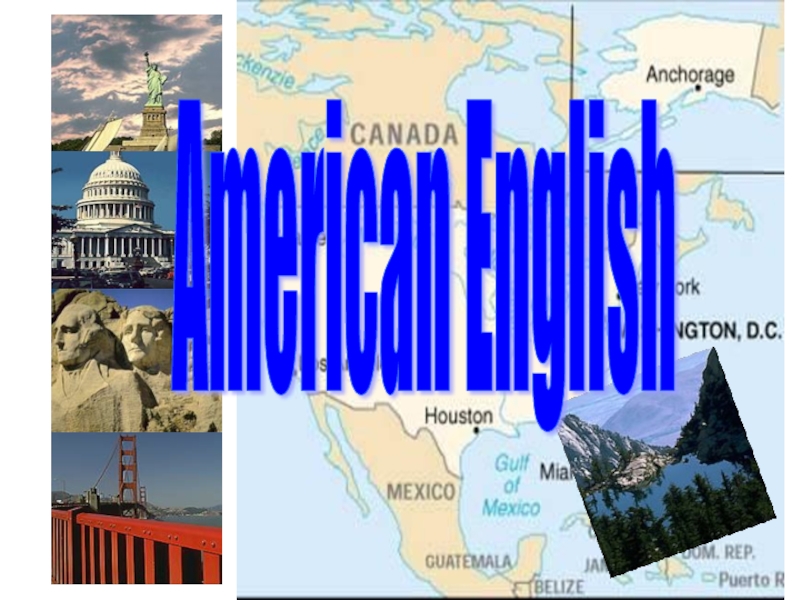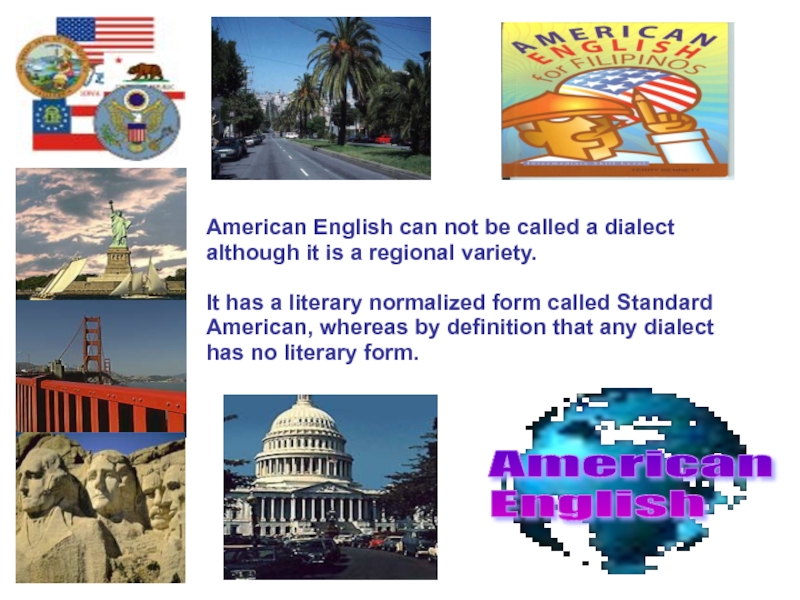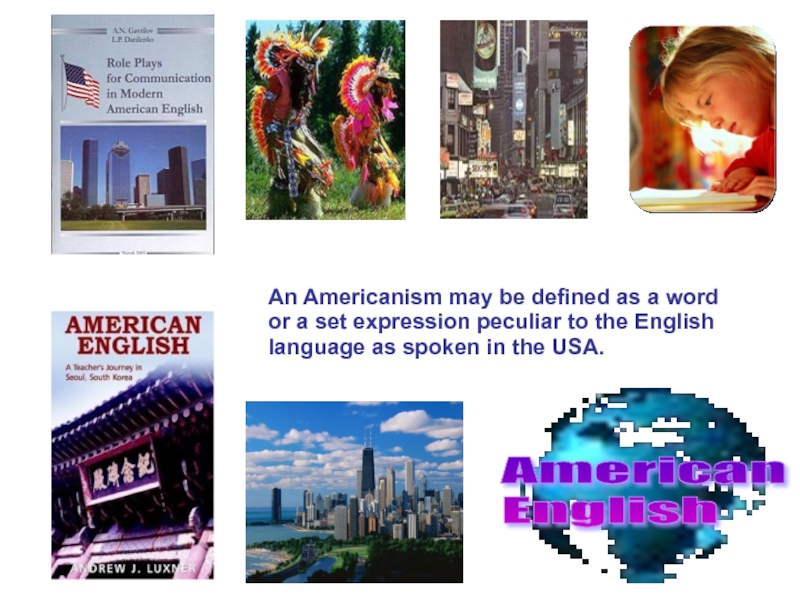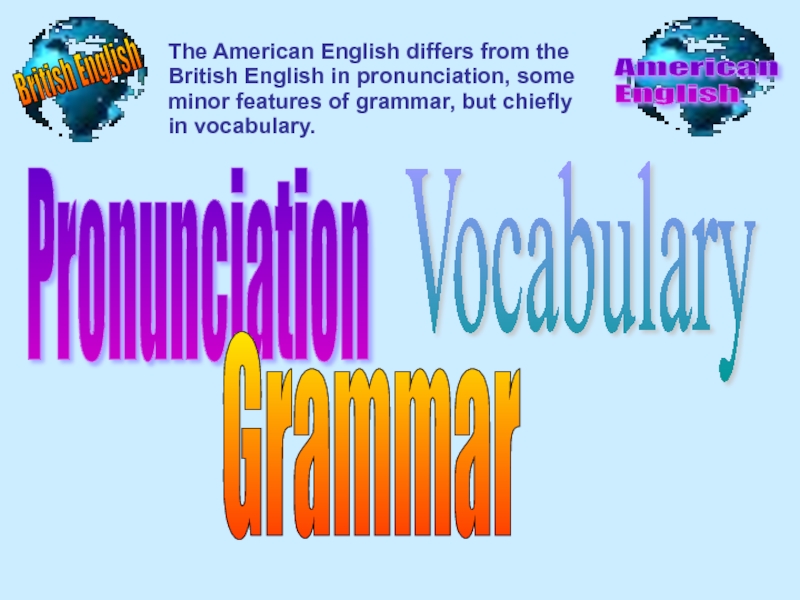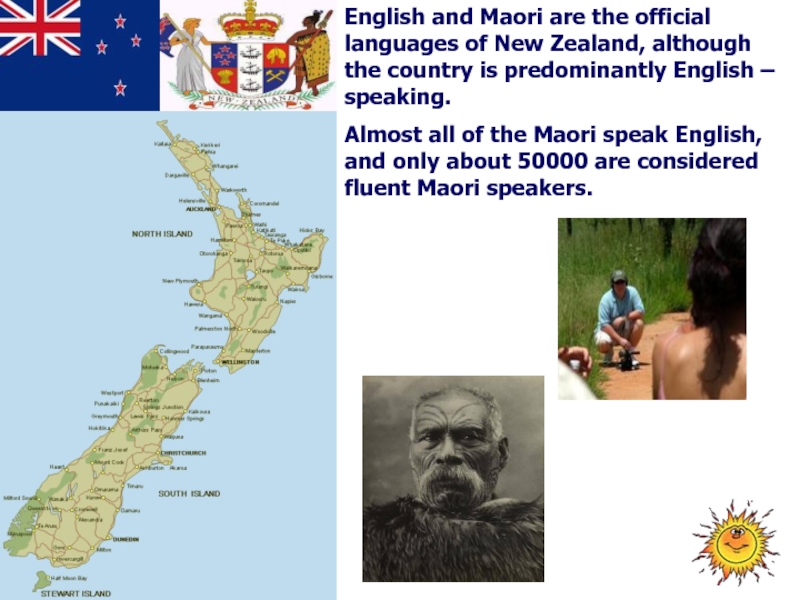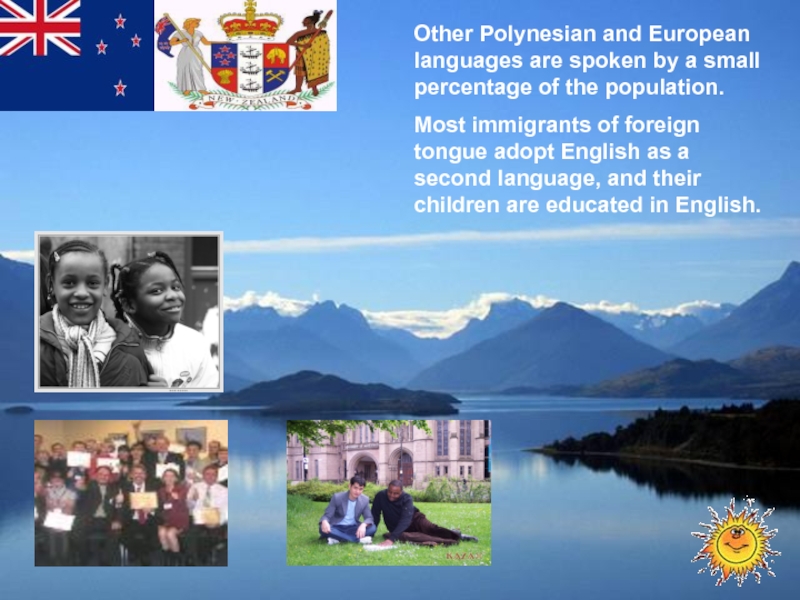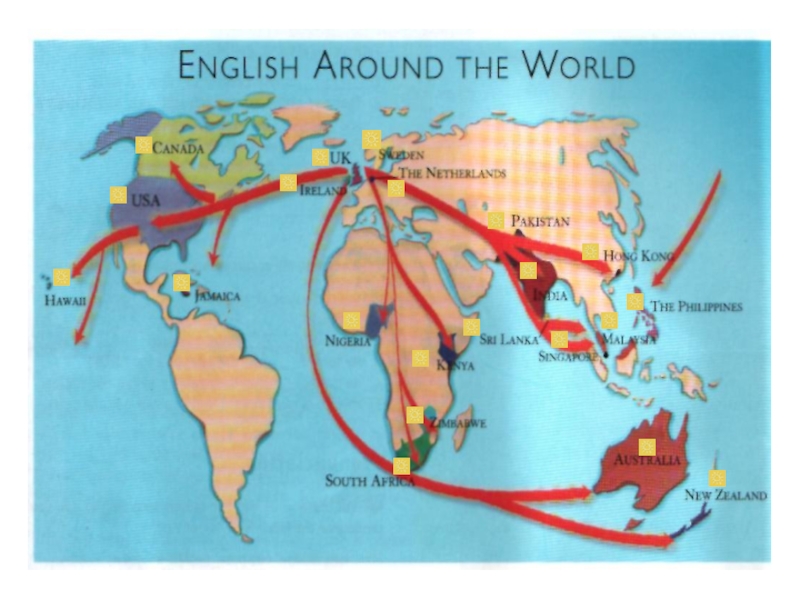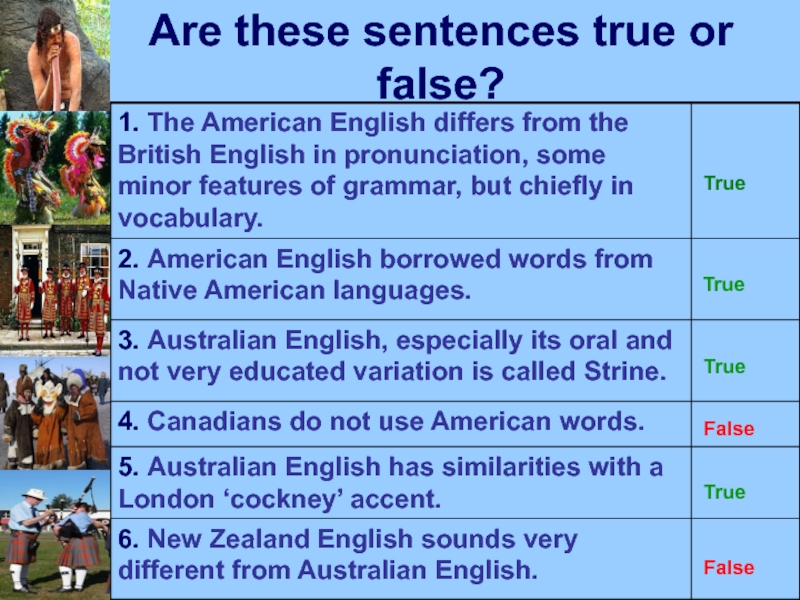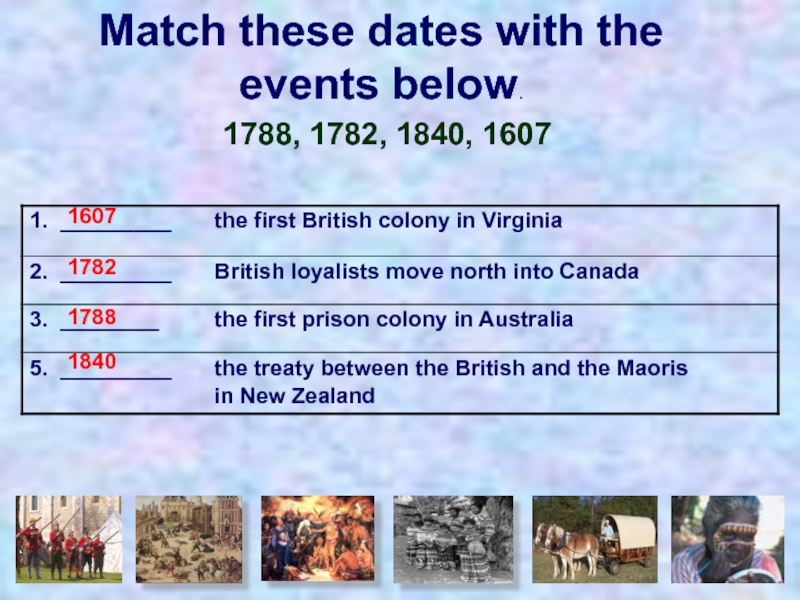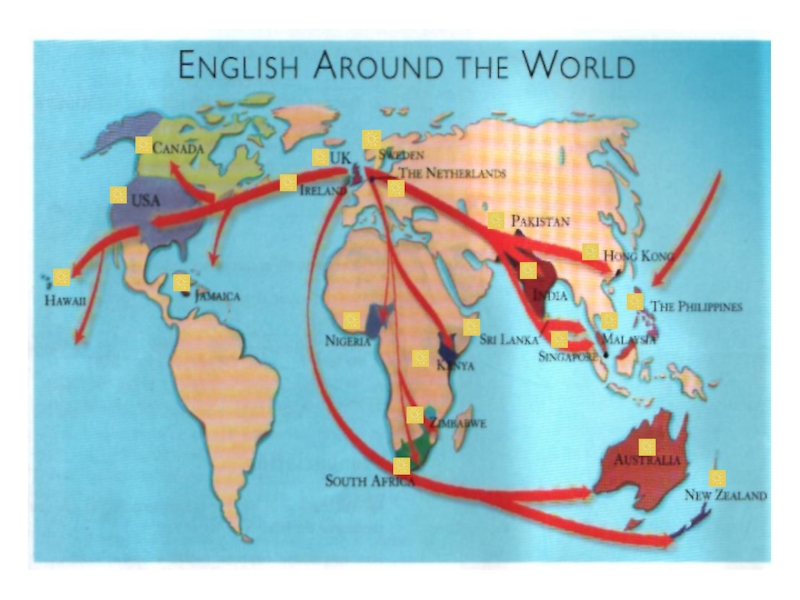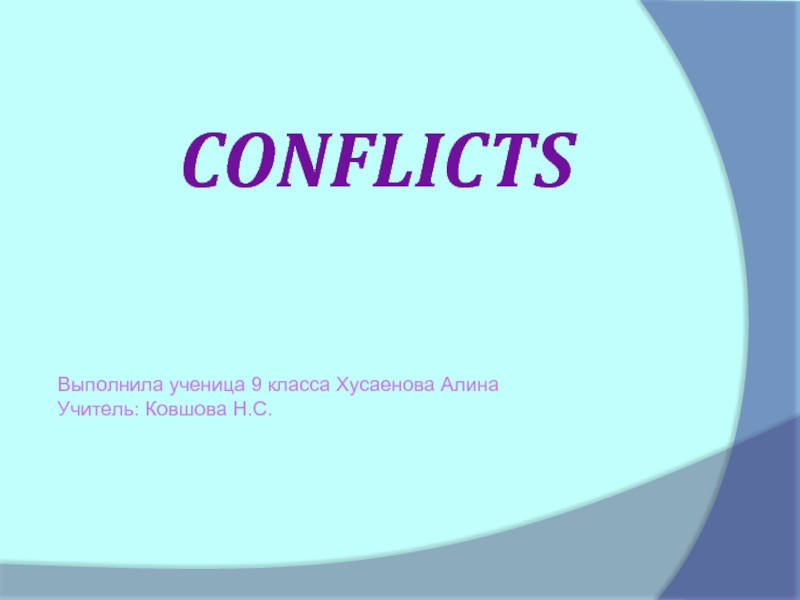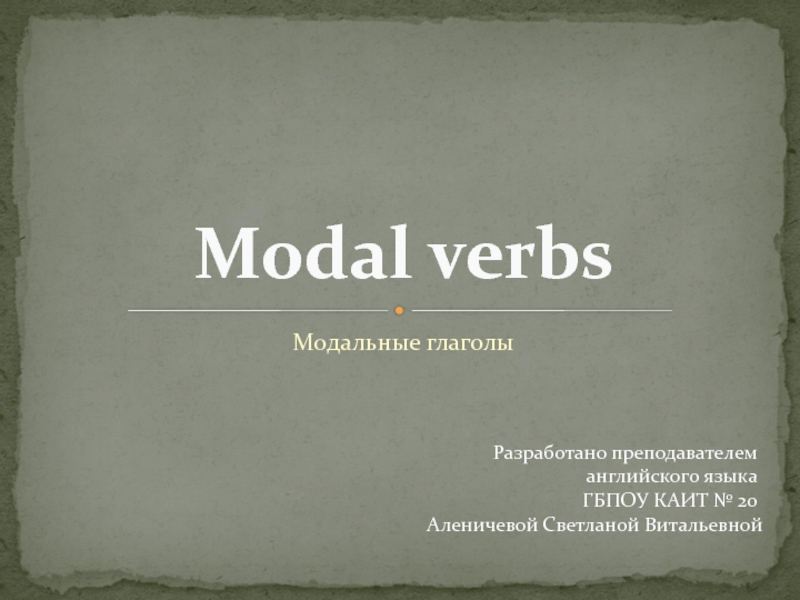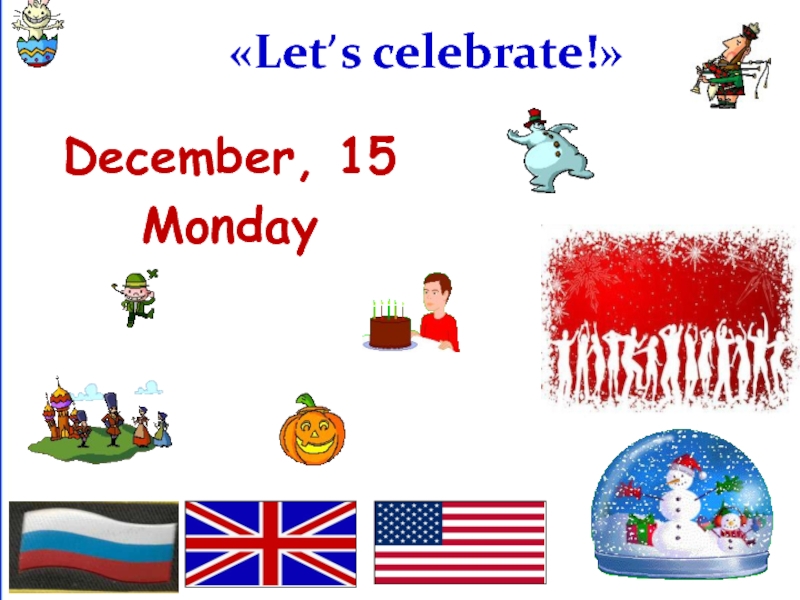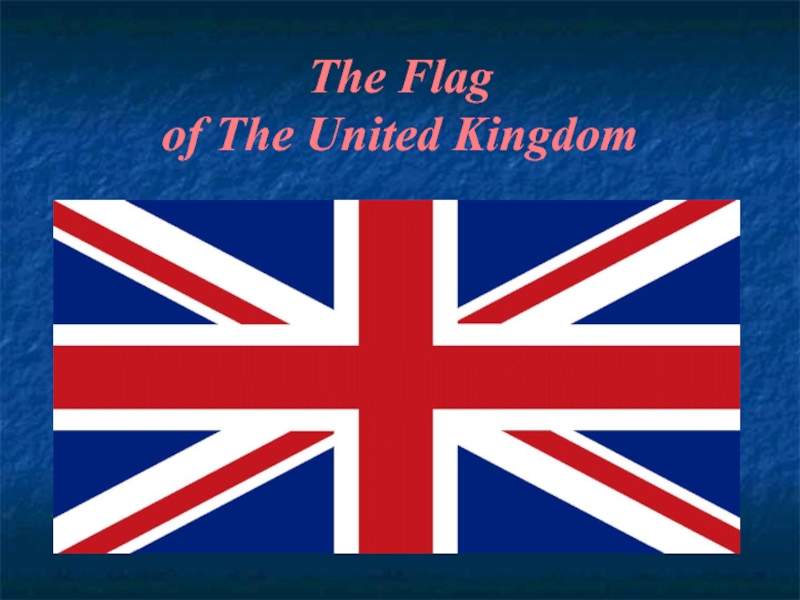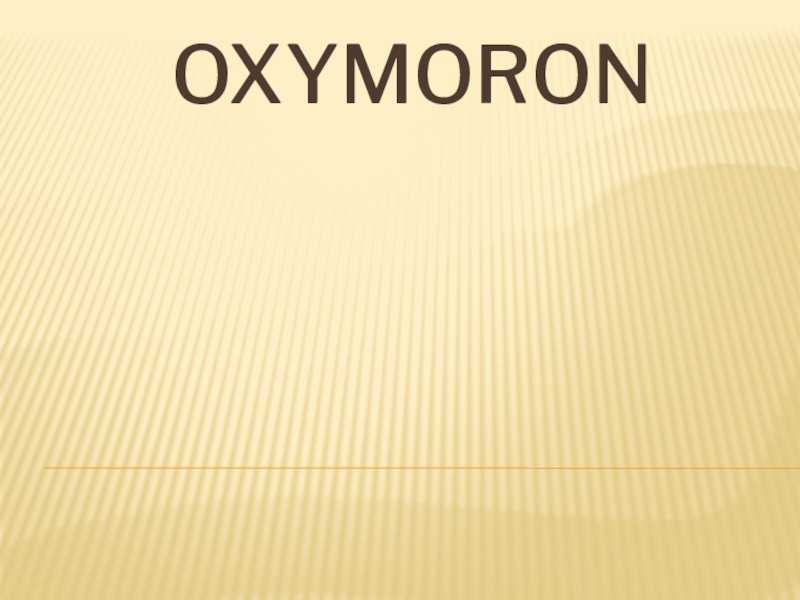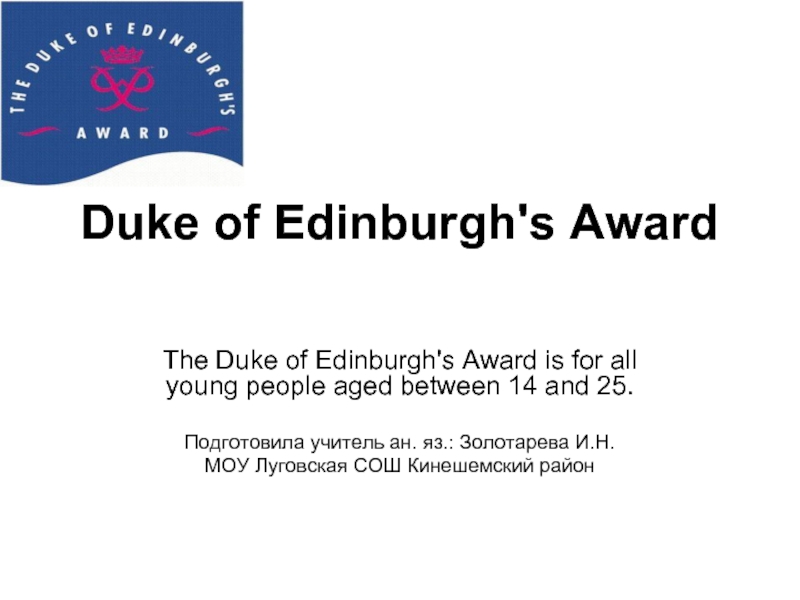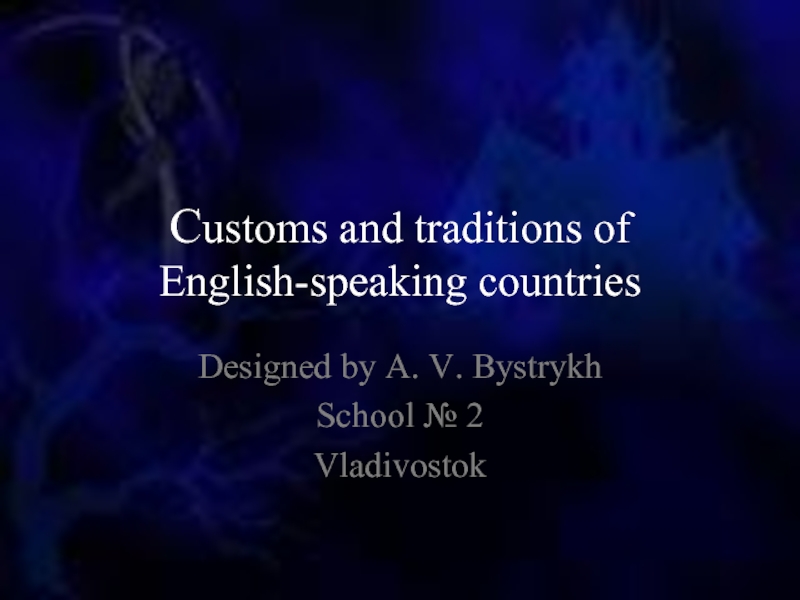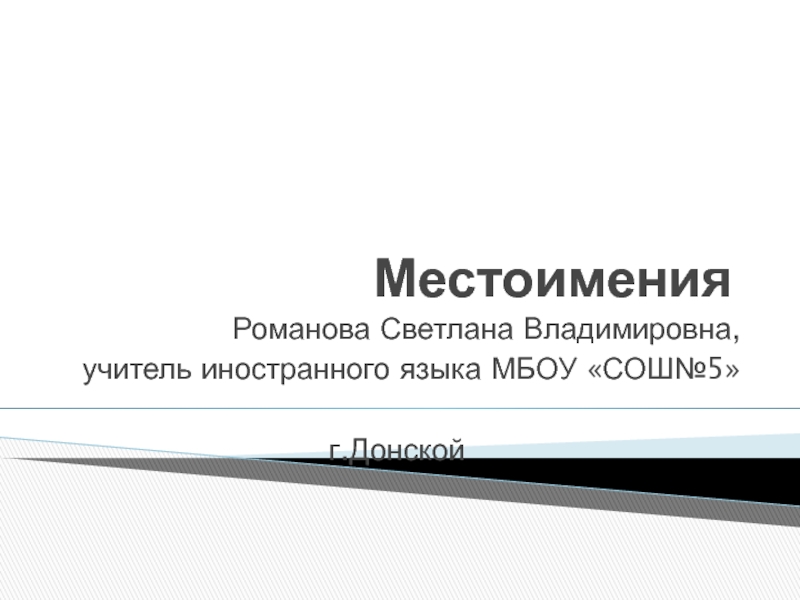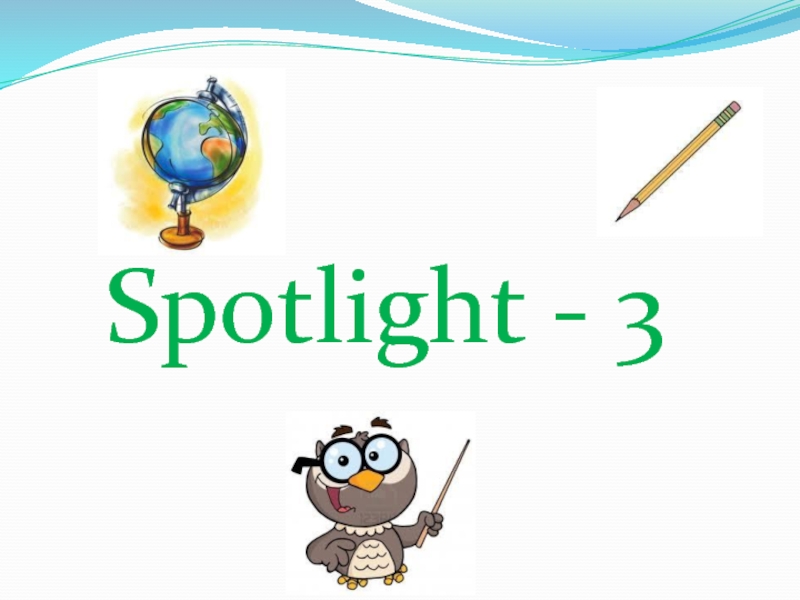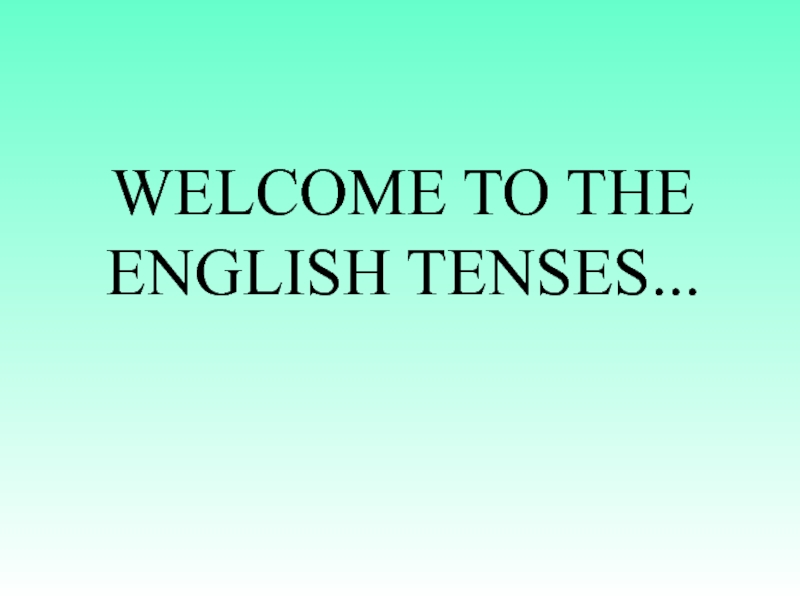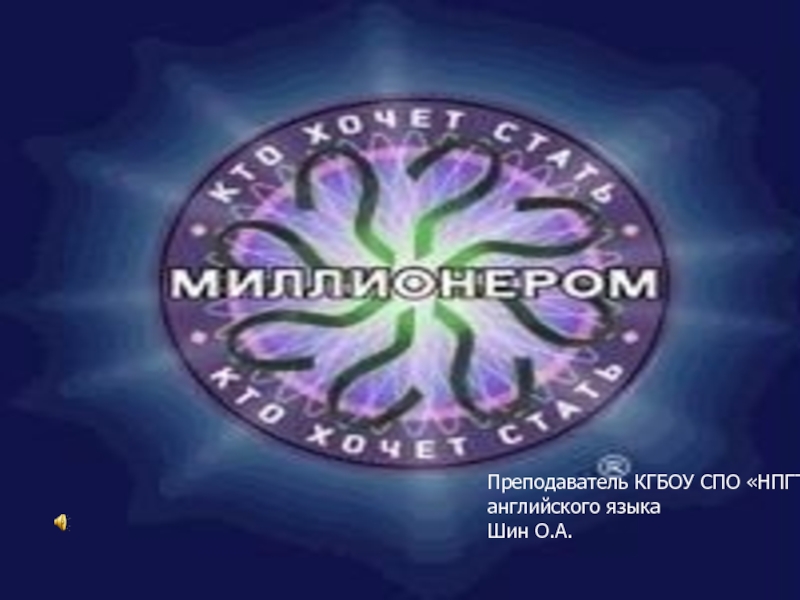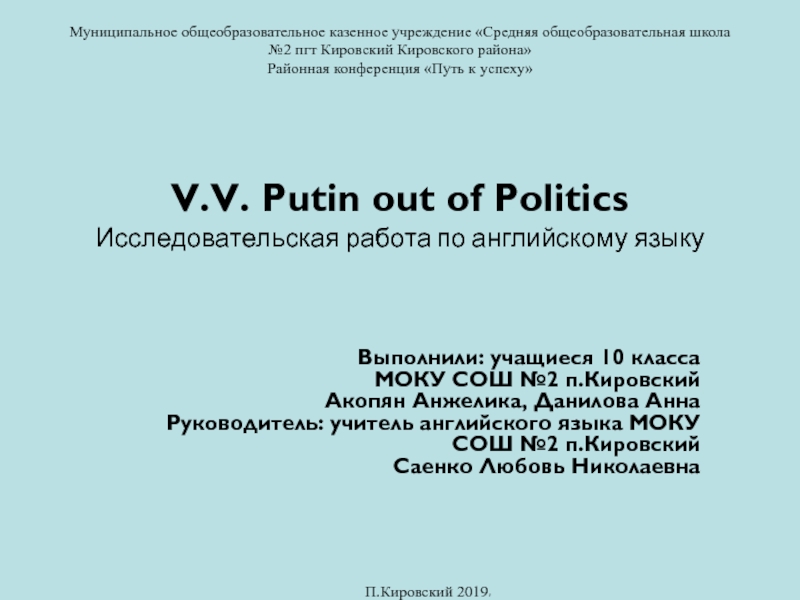Слайд 2English began to spread around the world in 1607 when
the English established a colony in Virginia. It was the
first English-speaking settlement in America.
Canadian English started life when British loyalists moved north into Canada in 1782.
Australian English began in 1788 when the first prisoners were sent to Australia as punishment.
New Zealand English started in 1840, with the treaty between the British and the Maoris in New Zealand.
America
Canada
Australia
New Zealand
Слайд 4Classify the countries according to the following groups
Australia Canada
Ireland
Jamaica New Zealand
the USA
India Kenya
Nigeria Pakistan the Philippines Singapore South Africa Sri Lanka Zimbabwe
Sweden
the Netherlands
Слайд 5Complete the sentences with the appropriate words
the expansion, a lingua
franca, the enormous economic power, a second language, a first
language
1 – the expansion
2 – the enormous economic power
3 – a first language
4 – a second language
5 – a lingua franca
Слайд 8Australia's official language is English. Australians speak the same English
across the nation-there are no regional dialects and only minor
idiomatic and semantic variations between the States. Australians understand each other as easily as they understand a person from another country who speaks English. Why is then that English-speaking visitors to Australia have trouble understanding the Aussie accent?
Слайд 9There are many theories about the evolution of the Australian
accent.
You will also find remnants of ‘cockney’, Irish, Scottish
and Welsh influence in the Australian pronunciation of some words. Then, of course, there was a large influx of German, Greek and Italian immigration , which has also had an influence as well. Later the language has been strongly influenced by TV media from the USA.
Слайд 10
Australian accents are different from various British ones:Australian «day» sounds
like «die»;Australian «buy» sounds like «boy».
There are different Australian
accents: Cultivated, General and Broad. In the «broad»variant the vowel shifts are particularly obvious. Australian English, especially its oral and not very educated variation is called Strine.
Слайд 11Australian English does not differ much from other forms of
English, although some colloquial and slang expressions are unique. For
example : «G'day»(Good day ) means «Hello» and «Ta-ta» means «Goodbye». Australians are fond of inventing and using colloquialisms for every aspect of life. Sayings which have a regional origin are used widely. For example, «Albany doctor», «back o' Bourke», «Buckley's chance» are universally used.
Australia
Слайд 12There are many native languages which the Aborigines speak. One
in every seven Australians older than five years speaks a
language other than English at home. The most common languages are Italian, Greek, Chinese, German and etc.
Слайд 15Canada is the world's second largest country by total
area and shares land borders with the United States to
the south and northwest. It is known as a multicultural country.
Слайд 16Canada's two official languages are English and French. Official Bilingualism
in Canada is law. English and French have equal status
in federal courts, Parliament, and in all federal institutions.
Слайд 17Although 85% of French-speaking Canadians live in Quebec. The Charter
of the French Language in Quebec makes French the official
language in Quebec, and New Brunswick.
Слайд 18Other provinces have no official languages Several aboriginal languages have
official status in Northwest Territories. Inuktitut is the majority language
in Nunavut, and one of three official languages in the territory.
Слайд 19Non-official languages are important in Canada. Some significant non-official first
languages include Chinese (853,745 first-language speakers), Italian (469,485), German (438,080),
and Punjabi (271,220)
Слайд 20To sum up, we would like to say, that Canadian
culture has historically been influenced by British, French, and Aboriginal
cultures and traditions. It has also been influenced by American culture because of its proximity and migration between the two countries.
Слайд 23The variety of English spoken in the USA has received
the name of American English.
The term variant or variety
appears most appropriate for several reasons.
American
English
Слайд 24American English can not be called a dialect although it
is a regional variety.
It has a literary normalized form called
Standard American, whereas by definition that any dialect has no literary form.
American
English
Слайд 25Neither is it a separate language, as some American authors
realize because it has neither grammar nor vocabulary of its
own. From the lexical point of view one shall have to deal only with a heterogeneous set of Americanisms.
American
English
Слайд 26
An Americanism may be defined as a word or a
set expression peculiar to the English language as spoken in
the USA.
American
English
Слайд 27The American English differs from the British English in pronunciation,
some minor features of grammar, but chiefly in vocabulary.
Pronunciation
Grammar
Vocabulary
American
English
British
English
Слайд 30English and Maori are the official languages of New Zealand,
although the country is predominantly English – speaking.
Almost all of
the Maori speak English, and only about 50000 are considered fluent Maori speakers.
Слайд 31Other Polynesian and European languages are spoken by a small
percentage of the population.
Most immigrants of foreign tongue adopt English
as a second language, and their children are educated in English.
Слайд 32
New Zealand English is different from Australian English; it is
pure and clear; it is easily understood everywhere in the
world.
At the same time although New Zealand lies over 1600 km away, the English spoken there is similar to that of Australia.
Слайд 33Maori place names are widely used, and some personal names
are well known (Ngaio, Kiri).
New Zealand English has many
borrowings from Polynesian languages: kiwi, moa, tui (birds), kauri, rata, maire (trees), etc.
Слайд 35Are these sentences true or false?
True
True
True
False
True
False
Слайд 36Match these dates with the events below.
1788, 1782, 1840, 1607
1607
1782
1788
1840
Слайд 38The great German poet Goethe said: “He, who knows no
foreign language, doesn’t know his own one”.
